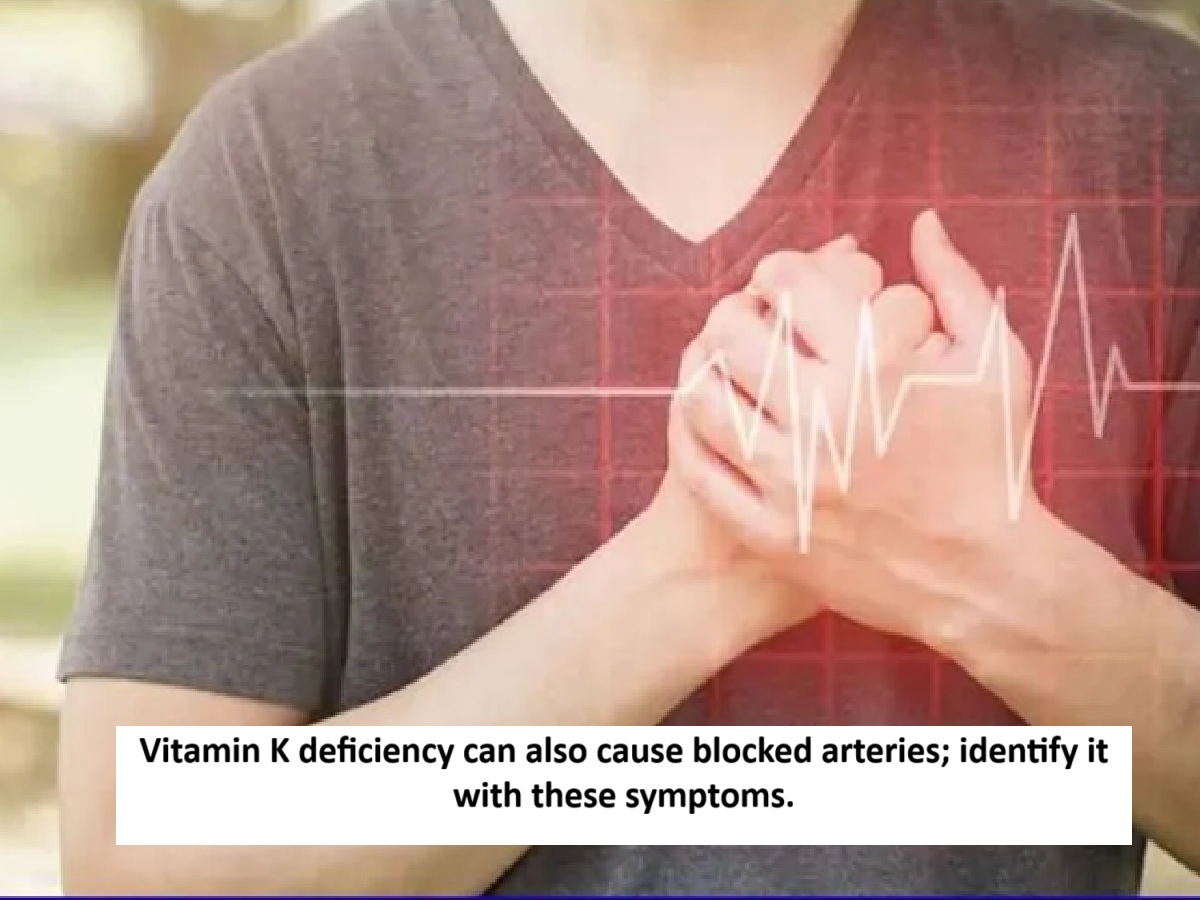
News Topical, Digital Desk : Did you know that vitamin K is also vital for your heart? Yes, we generally believe that vitamin K is essential only for blood clotting and bone health. But it is also directly linked to the risk of heart disease (Vitamin K Deficiency and Heart Disease).
Let us learn how Vitamin K affects your heart health and what symptoms (Vitamin K Deficiency) can identify it if it is deficient in the body.
The connection between vitamin K deficiency and the heart
Our bodies contain certain proteins that prevent calcium from accumulating in the walls of arteries, keeping them flexible and healthy. Vitamin K2 activates these proteins. When the body is deficient in vitamin K2, these proteins fail to function properly. This causes calcium to accumulate in arteries and heart valves instead of bones. This narrows and hardens the arteries, restricts blood flow, and significantly increases the risk of high blood pressure, heart attack, and stroke .
Therefore, people who have a diet high in vitamin K2 have a significantly lower risk of hardening of the arteries and heart disease. Vitamin K deficiency is considered a "silent risk factor" that slowly damages the heart without warning.
Symptoms of Vitamin K Deficiency
- Excessive bleeding – This is the most common symptom of vitamin K deficiency. Vitamin K is essential for blood clotting, so a deficiency can make bleeding difficult after an injury.
- Bone Weakening - Vitamin K is also essential for bone health. It activates the protein osteocalcin, which binds calcium in bones. A deficiency can weaken bones, increase the risk of osteoporosis, and increase the risk of fractures.
- Other symptoms: In severe deficiency, symptoms such as fatigue, weakness, and dizziness may also be observed, which are often due to anemia.
--Advertisement--

 Share
Share



